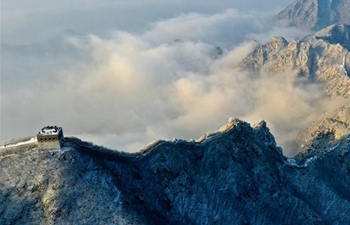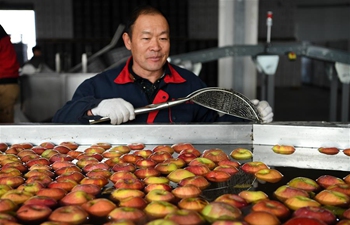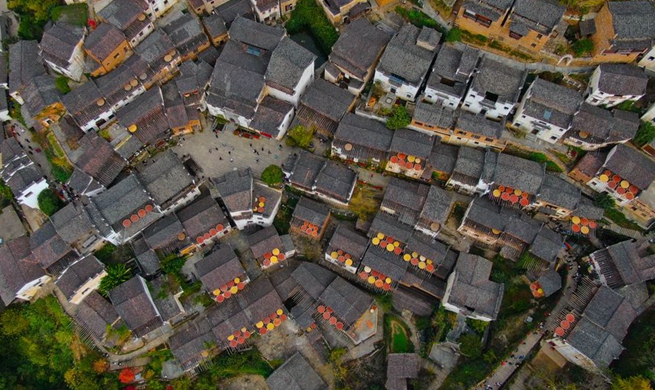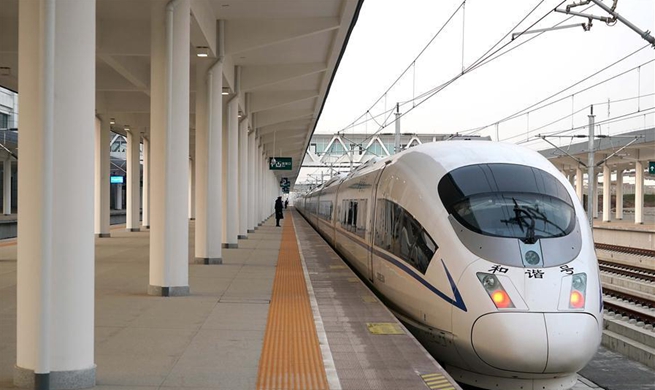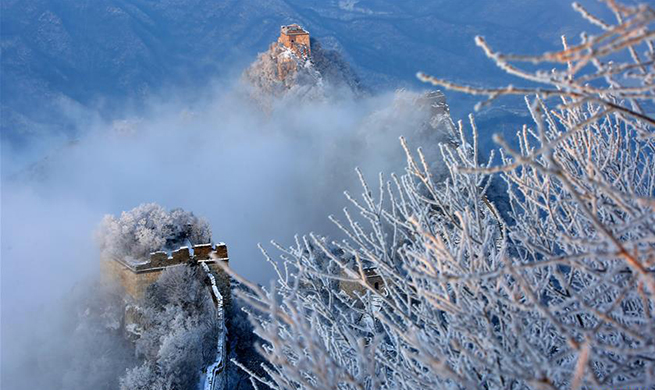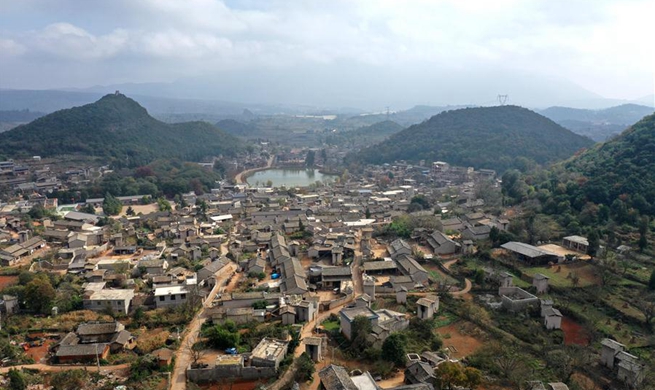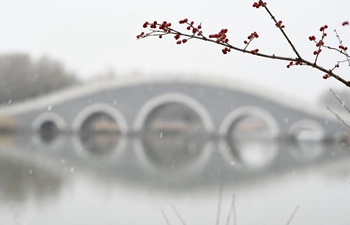ALGIERS, Dec. 1 (Xinhua) -- The upcoming presidential election on Dec. 12 in Algeria is seen as a safe way out to end the political crisis hitting the North African nation, amid growing fears of deterioration of the economic situation, as forex reserves and oil revenues, backbone of the economy, continue to drop sharply.
Algerian Finance Minister Mohammad Loukal warned the Council of the Nation (upper house of parliament) of the worsening situation of forex reserves and budget deficit, which has become the government's major trouble since 2014, following sharp decline in oil prices globally.
Loukal further recalled that the government was forced to resort to the forex reserves, from around 200 billion U.S. dollars in 2014 to less than 70 billion dollars this year, to cover the fiscal deficit.
The minister noted that the figure may drop to less than 51.6 billion dollars by the end of 2020, and if Algeria does not bridge the situation, it would be hit by a financial crisis by 2022.
Such fears have been confirmed in a report issued in November by the Customs Department which showed decline in the value of Algeria's oil and gas exports during the first nine months of 2019 by 12.52 percent to 25.28 billion dollars from 28.89 billion dollars a year ago.
Hydrocarbons exports constitute 95 percent of Algeria's revenues in hard currency. This situation has forced the government to draft a new energy law that includes tax cut, with the aim of attracting more foreign investors in order to increase productivity.
However, the government barred foreign stakes from exceeding 49 percent in all energy projects, but it has decided to cancel this rule in other "non-strategic" sectors in an attempt to attract more investments.
The deficit in the trade balance, which started to increase in 2014, hit 5.22 billion dollars during the first nine months of 2019 comparing with 3.16 billion dollars a year ago, showed figures of the Customs' Studies and Prospective Office.
The source added that the value of exports is at low level compared with those before 2014.
The Algerian economy suffers a structural crisis because of the dependence on oil industry, the backbone of the economy for decades, despite the efforts of successive governments to overcome this situation and attempts to shift to a diversified economy.
On Saturday, Prime Minister Noureddine Bedoui held a meeting with Sami Akli, head of the Employers Forum, the largest economic institution in Algeria, and the two discussed the economic situation in the country.
Akli told a press conference that Algeria has lost more than half a million jobs since the outbreak of the political crisis on Feb. 22, saying that the already lagging economy has been affected additionally.
He revealed that the construction and public works sector, for example, has been among the most affected sectors, as more than 70 percent of businesses are under the threat of being shut down due to financial difficulties.
Akli further urged the government to draw up a support plan for companies that have been forced to cancel job positions amid the anti-corruption operation launched by the judiciary five months ago against major companies owned by prominent businessmen close to the entourage of former President Abdelaziz Bouteflika.
Several of these businessmen have been placed under custody, while the financial operations of their companies have been frozen, forcing thousands of workers to take to the streets to claim receiving their salaries.
For her part, Saida Neghza, head of the General Confederation of Algerian Companies, warned that more than 3,000 companies based in the capital Algiers have shut down due to the economic crisis, adding the crisis has also affected in particular small and medium-sized enterprises.
Moreover, the current crisis was aggravated by the decision of printing money during the recent three years, which provoked a rise in internal debt to exceed 55 billion dollars and caused an unprecedented drop in the value of the local currency dinar.
To curb this, the government is considering resorting back to foreign borrowing to fund potential lucrative economic projects. The North African nation stopped borrowing from abroad by 2005 amid the financial affluence as a result of hiking oil prices.
The government also decided to invest about 60 billion dollars in the oil sector in the medium term in order to revamp its oil reserves.
In case it fails in revamping its oil and gas reserves, Algeria may face "scaring" scenario as it would be forced to stop its oil exports to satisfy growing domestic demand, experts warned.
The next president will face a heavy responsibility amid the economic crisis. Some observers believe that by electing a president and recovering normal constitutional process, Algeria would be able to gradually fix its problems mostly as it boasts enormous potential.
